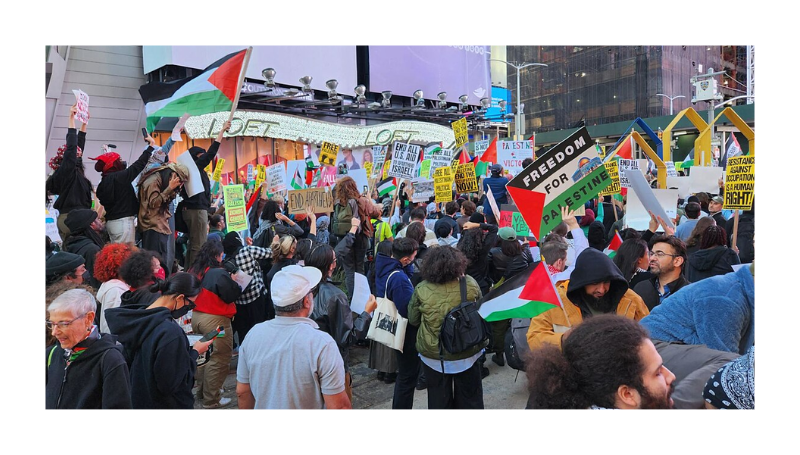Gary Wexler
Jewish Journal, Nov. 18, 2023
“American Jews are sending cans of food and socks to Israel while the Palestinians are conceptualizing bigger and better worldwide actions. We’re still fighting and demonizing one another. Many organizations have not yet woken up that it is no longer business as usual.”
The brilliant Palestinian plan to capture the pliable minds of American college students was laid out in front of me 25 years ago, during a very sinister business meeting in Israel.
It was around the time of the Oslo Accords. I had been hired by the Ford Foundation to create a marketing institute for their grantees in the country. Ford was funding the operations of both Jewish and Arab organizations within the Israeli green line, in an effort to help build a vibrant liberal civil society.
Ford put me in partnership with a young Israeli woman, Debra London. (Debra, now one of my closest friends, has just been selected to head up fundraising for the rebuilding of Kibbutz Be’eri.) She and I drew up a plan to interview each of the grantees, as well as Israeli ad agencies and media firms. While we wanted to learn about the grantees, we also planned to secure free marketing work and media to be an essential part of the institute.
When we interviewed the Jewish organizations, the atmosphere was almost giddy with hope, possibility and belief in Shimon Peres’s new Middle East. Each organization we interviewed talked excitedly about peace and co-existence, a flourishing economy among both the Jews and the Palestinians, collaborative projects and interchanges.
But when we interviewed the Arab organizations, the word “peace” never passed their lips. They spoke of independence, dignity, self-rule, a state. One person even told me she would never use the word “du-kiyum” (co-existence). “There is no such thing as co-existence,” she stressed. “We are just the tenants living on the property that the Jews now own. That’s not a balanced co-existence.”
I tried to explain to my fellow Jewish liberals that we — the Jews and the Arabs — were having two very separate conversations. We were talking “peace.” They were talking “independence.” But as the weeks of interviews progressed, I found the Arab organizations were talking about a whole lot more.
I asked hard questions of both the Jews and Arabs in the interviewing process. With the Arab organizations, when I brought up any sensitive, and not-so-sensitive, issues—like terrorism, cooperation and even budget—the interviewee would slam on the brakes.
… [To read the full article, click here]


